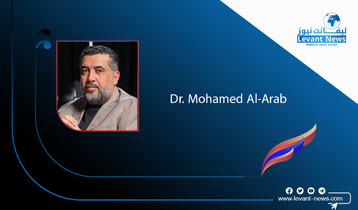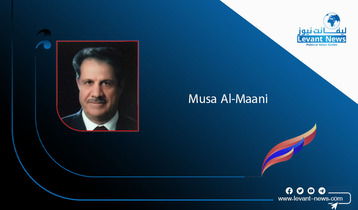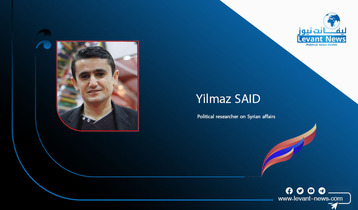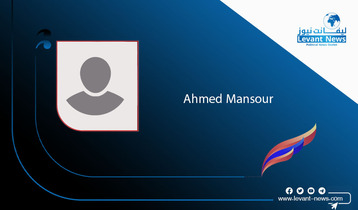-
Iran Amidst an Economic Crisis: Is BRICS a Lifeline?
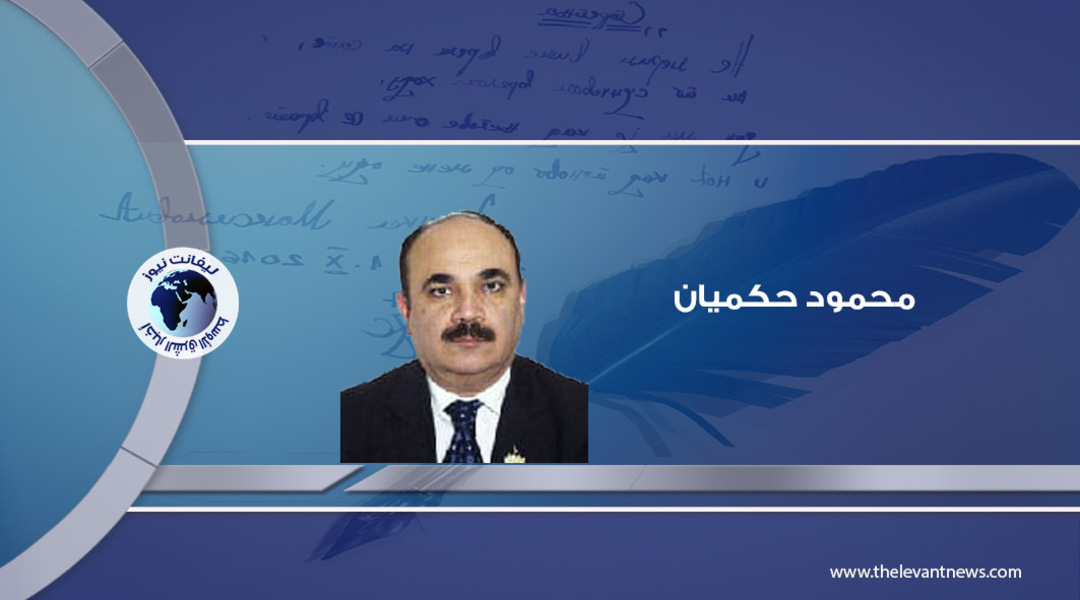
"Between Sanctions and Hope: Can Iran Overcome Its Economic Crisis through BRICS?"
Recent statistics and estimates regarding the economic crisis in Iran reveal the shortcomings of the ruling regime. What was yesterday referred to as a "major crisis" is now being labeled as a "disruption." This encompasses everything from budget deficits and crises in water, electricity, and gas to the skewed balance between exports and imports, the shortage of schools, teachers, and students, as well as the migration of doctors and nurses from hospitals. These imbalances also include banking issues, income and spending gaps, a declining active workforce, brain drain, inflation, and unemployment. It seems there is nothing left but to watch the collapse and decline of the remnants of an ancient and proud civilization.
**We Need Money, Not Words!**
The head of the regime, Masoud Beizhehkyan, arrived in Kazan, Russia, with a suitcase full of demands. His aim was to secure understandings, agreements, and joint projects with BRICS member states. On October 26, the Rouydad 24 news site reported: "Beizhehkyan said, 'BRICS should not just be a club for discussions. The decisions of BRICS must have execution guarantees and take greater responsibility for funding member states.' But does BRICS currently have this capability, or does it still have a long way to go to move beyond being just a discussion club? While Iran's membership in BRICS could be an important opportunity, it does not mean that the official members and observers can assist Tehran at this critical economic and even security juncture."
Even the "Comprehensive Cooperation Agreement between Iran and Russia," which was hoped to be signed in Kazan during this trip, was postponed to a later time, leaving Beizhehkyan empty-handed upon his return to Iran.
The Minister of Economy had previously stated, "For the first time, Iran is officially participating in the BRICS summit at the leadership level, and I hope these efforts in various political, security, cultural, and public dimensions will lead to economic and financial achievements and develop Iran's economic relations with BRICS countries." (Source: Eiko Iran news site - October 24)
**Beizhehkyan's Mission: Dealing with Economic Aftershocks**
Local and international reports have highlighted the acute economic crisis in Iran. On October 25, Eghtesad News reported a study from the Atlantic Council, noting, "One of Beizhehkyan's goals for attending the BRICS summit is to gain support from member countries to bear the aftershocks of sanctions targeting the Iranian economy and the energy sector."
The report, like other independent assessments, indicates that Iran's economy is in a very precarious state, with GDP growth dropping to around 2% and inflation at 34%, posing severe economic challenges. According to local media reports, prices for bread and other basic goods such as water and housing have surged.
**Innumerable Crises of the Clerical Regime**
With power plants operating at a maximum capacity of 70% and steel exports reduced by half, the ongoing energy deficit and the electricity shortfall of 17 gigawatts have become apparent. Under these conditions, the state-owned electricity company "Tavanir" is forced to sell electricity abroad at higher prices for a few extra dollars.
Even supposed reformists now defend the "Look to the East" policy promoted by the regime's Supreme Leader Ali Khamenei. "The Minister of Economy affirmed that Iran's membership in BRICS is an opportunity to develop economic and political relations with member countries through bilateral and multilateral cooperation and improve the economic situation." (Source: Farhikhtegan newspaper - October 26)
Meanwhile, Khamenei's mafia-like factions are also rapidly working along the "Look to the East" path, stating, "Iran’s membership in BRICS and the Shanghai Cooperation Organization is an achievement that has helped solidify Iran's position in the international system and strengthen a balanced foreign relations policy." (Same source)
**Without FATF Membership and Lifting Sanctions, BRICS Remains Closed**
Despite the Iranian regime's awareness of the lack of resources and capital, it continues its war and support for terrorism, leading the international community to impose sanctions that prevent it from accessing international resources. Fereydoun Majlesi, a university professor, states, "What makes Iran's access to BRICS impossible is that banking cooperation with BRICS countries requires compliance with the Financial Action Task Force guidelines. If Iran does not accept these protocols, regular banking operations will not be established, and without this cooperation, escape from economic difficulties is almost impossible." (Source: Arman news site - October 26)
The Minister of Economy also acknowledged: "The issues of sanctions pressure and the Financial Action Task Force are preventing our banks from connecting with banks that are members of BRICS." (Source: Abrar newspaper - October 26)
by: Mahmoud Hakmanian
You May Also Like
Popular Posts
Caricature
BENEFIT AGM approves 10%...
- March 27, 2025
BENEFIT, the Kingdom’s innovator and leading company in Fintech and electronic financial transactions service, held its Annual General Meeting (AGM) at the company’s headquarters in the Seef District.
During the meeting, shareholders approved all items listed on the agenda, including the ratification of the minutes of the previous AGM held on 26 March 2024. The session reviewed and approved the Board’s Annual Report on the company’s activities and financial performance for the fiscal year ended 31 December 2024, and the shareholders expressed their satisfaction with the company’s operational and financial results during the reporting period.
The meeting also reviewed the Independent External Auditor’s Report on the company’s consolidated financial statements for the year ended 31 December 2024. Subsequently, the shareholders approved the audited financial statements for the fiscal year. Based on the Board’s recommendation, the shareholders approved the distribution of a cash dividend equivalent to 10% of the paid-up share capital.
Furthermore, the shareholders endorsed the allocation of a total amount of BD 172,500 as remuneration to the members of the Board for the year ended 31 December 2024, subject to prior clearance by related authorities.
The extension of the current composition of the Board was approved, which includes ten members and one CBB observer, for a further six-month term, expiring in September 2025, pending no objection from the CBB.
The meeting reviewed and approved the Corporate Governance Report for 2024, which affirmed the company’s full compliance with the corporate governance directives issued by the CBB and other applicable regulatory frameworks. The AGM absolved the Board Members of liability for any of their actions during the year ending on 31st December 2024, in accordance with the Commercial Companies Law.
In alignment with regulatory requirements, the session approved the reappointment of Ernst & Young (EY) as the company’s External Auditors for the fiscal year 2025, covering both the parent company and its subsidiaries—Sinnad and Bahrain FinTech Bay. The Board was authorised to determine the external auditors’ professional fees, subject to approval from the CBB, and the meeting concluded with a discussion of any additional issues as per Article (207) of the Commercial Companies Law.
Speaking on the company’s performance, Mr. Mohamed Al Bastaki, Chairman BENEFIT , stated: “In terms of the financial results for 2024, I am pleased to say that the year gone by has also been proved to be a success in delivering tangible results. Growth rate for 2024 was 19 per cent. Revenue for the year was BD 17 M (US$ 45.3 Million) and net profit was 2 Million ($ 5.3 Million).
Mr. Al Bastaki also announced that the Board had formally adopted a new three-year strategic roadmap to commence in 2025. The strategy encompasses a phased international expansion, optimisation of internal operations, enhanced revenue diversification, long-term sustainability initiatives, and the advancement of innovation and digital transformation initiatives across all service lines.
“I extend my sincere appreciation to the CBB for its continued support of BENEFIT and its pivotal role in fostering a stable and progressive regulatory environment for the Kingdom’s banking and financial sector—an environment that has significantly reinforced Bahrain’s standing as a leading financial hub in the region,” said Mr. Al Bastaki. “I would also like to thank our partner banks and valued customers for their trust, and our shareholders for their ongoing encouragement. The achievements of 2024 set a strong precedent, and I am confident they will serve as a foundation for yet another successful and impactful year ahead.”
Chief Executive of BENEFIT; Mr. Abdulwahed AlJanahi commented, “The year 2024 represented another pivotal chapter in BENEFIT ’s evolution. We achieved substantial progress in advancing our digital strategy across multiple sectors, while reinforcing our long-term commitment to the development of Bahrain’s financial services and payments landscape. Throughout the year, we remained firmly aligned with our objective of delivering measurable value to our shareholders, strategic partners, and customers. At the same time, we continued to play an active role in enabling Bahrain’s digital economy by introducing innovative solutions and service enhancements that directly address market needs and future opportunities.”
Mr. AlJanahi affirmed that BENEFIT has successfully developed a robust and well-integrated payment network that connects individuals and businesses across Bahrain, accelerating the adoption of emerging technologies in the banking and financial services sector and reinforcing Bahrain’s position as a growing fintech hub, and added, “Our achievements of the past year reflect a long-term vision to establish a resilient electronic payment infrastructure that supports the Kingdom’s digital economy. Key developments in 2024 included the implementation of central authentication for open banking via BENEFIT Pay”
Mr. AlJanahi concluded by thanking the Board for its strategic direction, the company’s staff for their continued dedication, and the Central Bank of Bahrain, member banks, and shareholders for their valuable partnership and confidence in the company’s long-term vision.
opinion
Report
ads
Newsletter
Subscribe to our mailing list to get the new updates!


